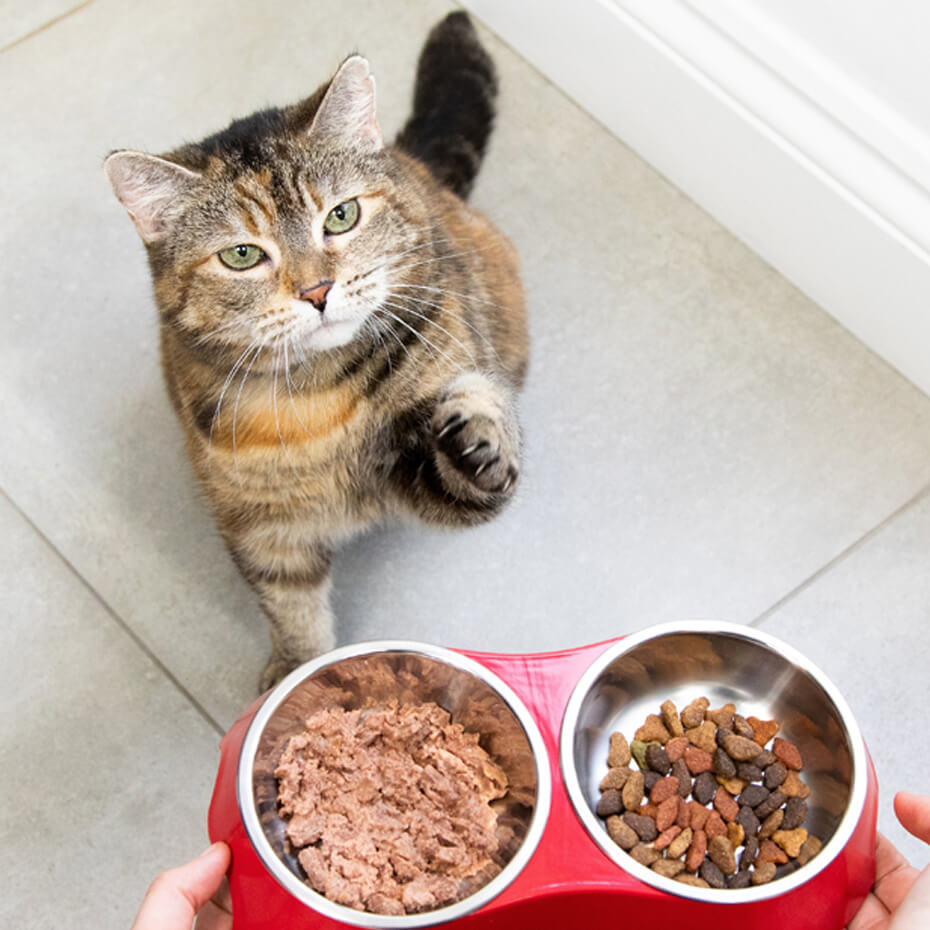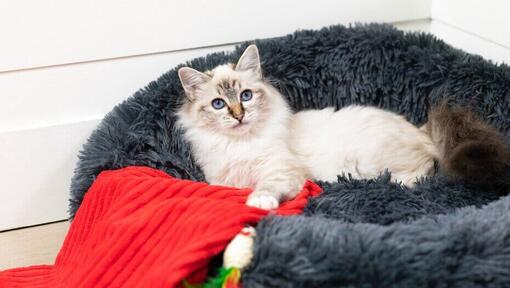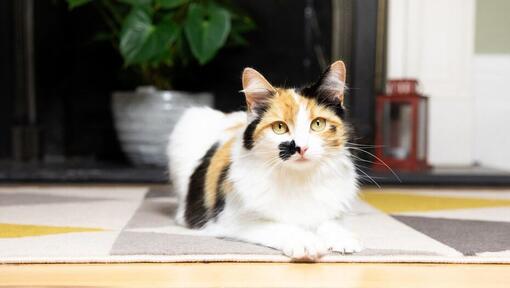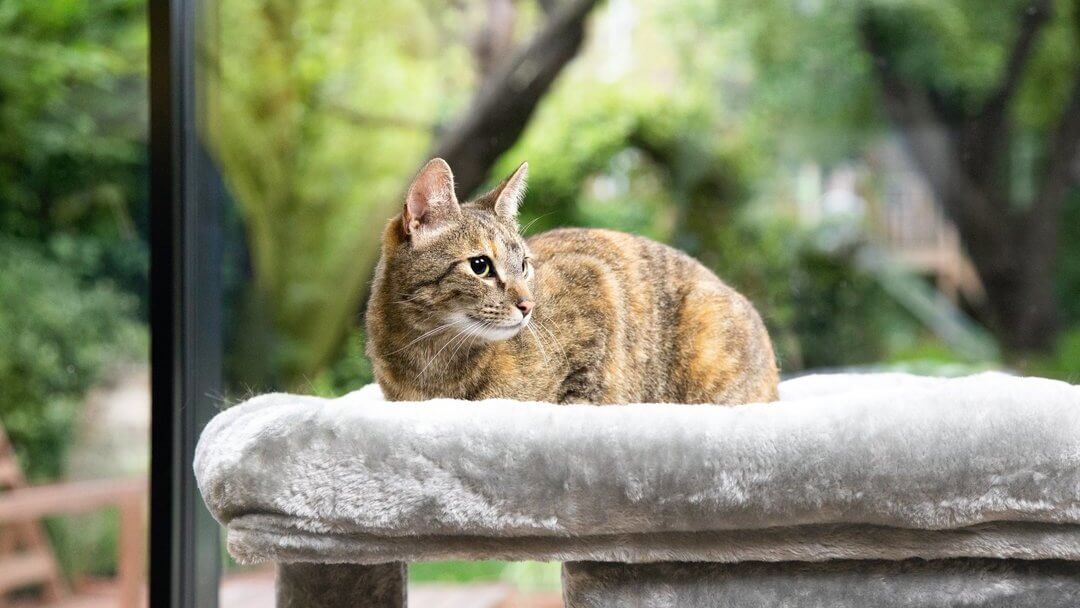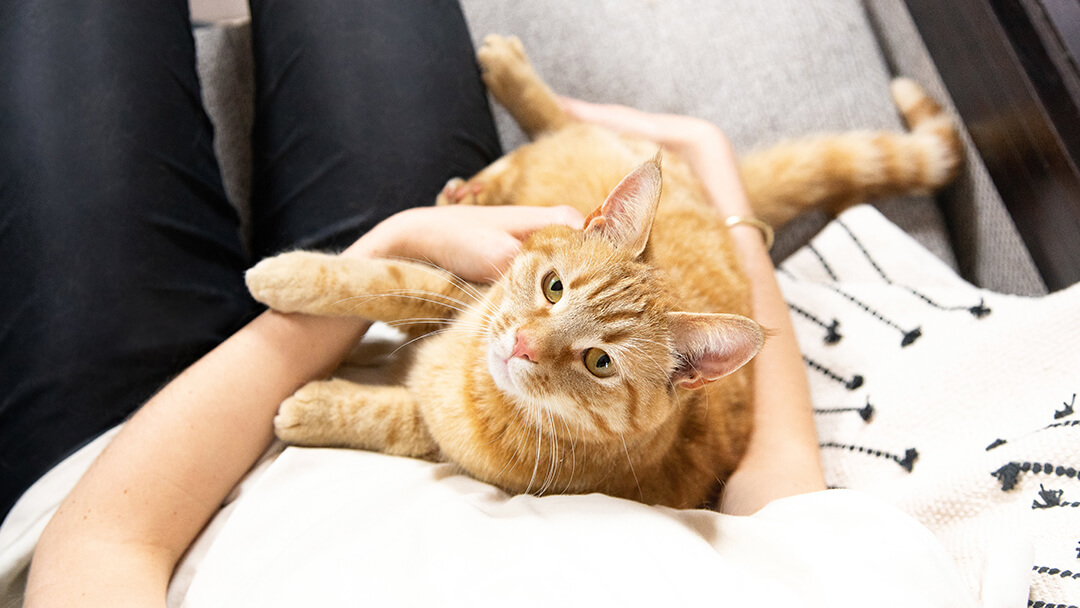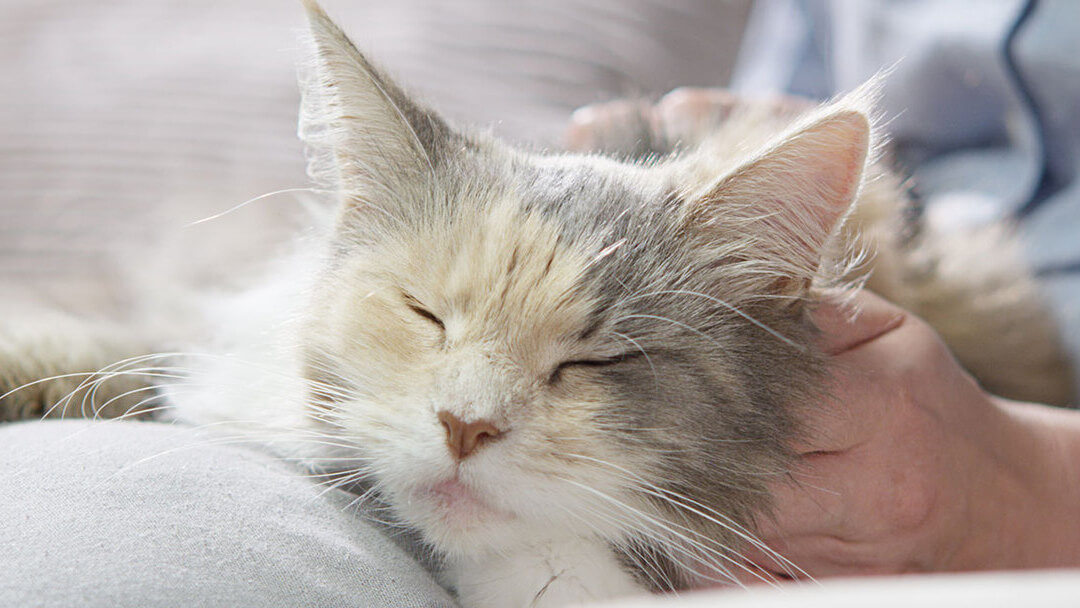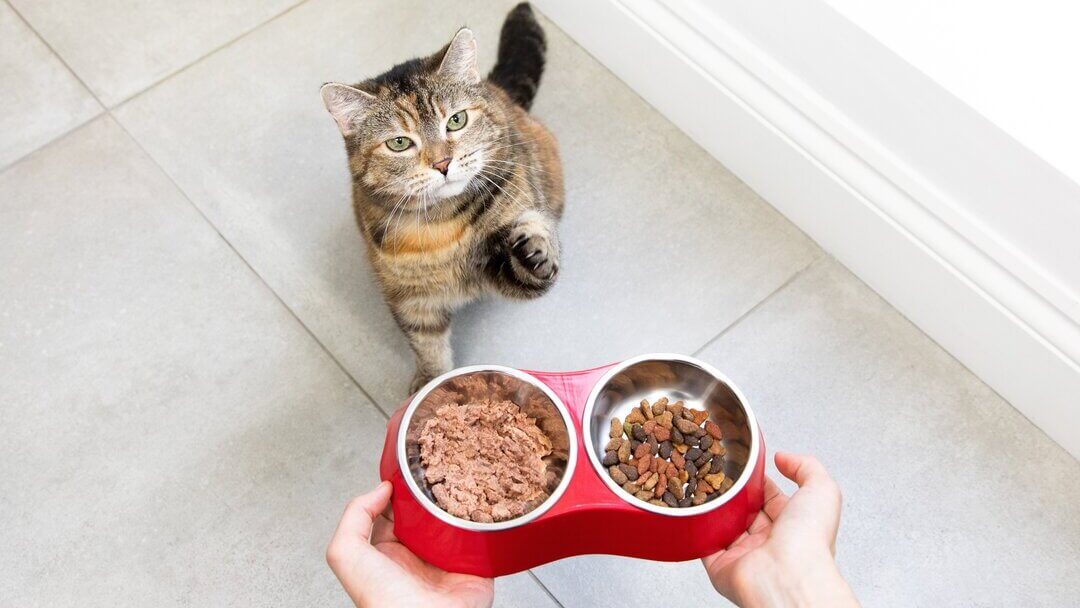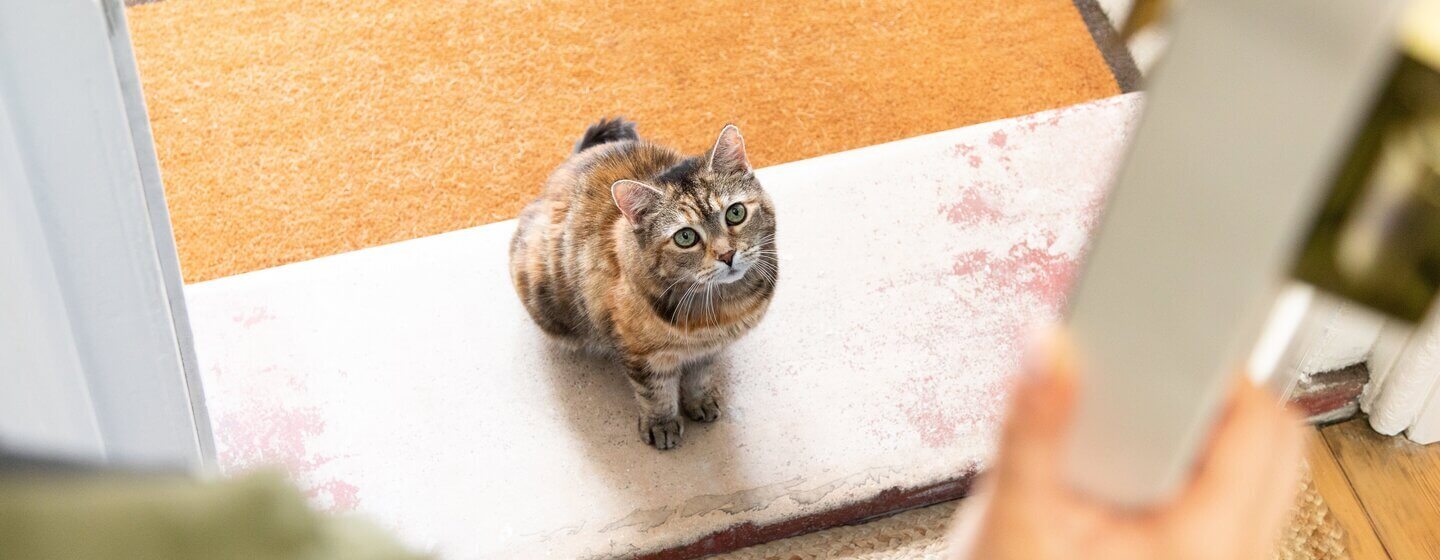
If you’re expecting new bundles of fur arriving at your home soon, it can be very exciting – and perhaps a little daunting too.
You shouldn’t need to worry - pregnant cats are usually more than capable of taking care of themselves, although they will still need close care and attention from you during labour. As they often try to sneak away to give birth in private, you’ll need to keep a close eye on them in the last few weeks just in case! Speak to your vet if you have any concerns about pregnancy in cats, or are worried about your cat giving birth. Their advice should help to put your mind at rest.
Here are some helpful tips from our PetCare Team to help you be as prepared as possible for when your cat becomes a new mum.
Preparing for the birth
During the last two weeks of your cat’s pregnancy, make sure everyone else in the family knows to be calm and quiet around her, and to handle her with care – especially children, who can be understandably excited at the prospect of kittens to play with soon!
Try to keep her as calm and inactive as possible during this time, and encourage her to relax in her special maternity bed. Even the snuggliest soft bed might not tempt her however, and some cats will reject your suggested birthing bed for a corner of a cupboard! Just make sure she has some choice on where to give birth and never try to move her from her chosen spot.
Have help on hand
Your cat’s labour should go smoothly, but it’s useful to have help on hand to keep her calm and in case she runs into any complications.
Get hold of your vet's out-of-hours phone number prior to your cat giving birth, as delivery often happens during the night, or they might need an emergency helping hand. If mum does have problems delivering her kittens, you may need to take her into the vet, so make sure that you have access to transport.
When you think labour might be approaching, it’s good to get a few things ready in advance, including a clean bowl of warm water, clean towels and cloths, dental floss and disposable gloves, together with a cat carrier and your vet’s details. It’s important to have these things to hand, just in case!
If you need to move the kittens away from mum at any time, you’ll need to keep them warm. We recommend using a microwaveable beanie bag instead of a hot water bottle, as their sharp teeth and claws can cause punctures.
Know what signs to look out for
Impending labour can be tricky to spot. During the first stages of labour, the mum (queen) will become very restless, pace as if she is looking for something, and become very vocal. Contact your vet if you are unsure if labour has started, and keep a close eye on your cat in her final weeks and days of labour to make sure you know when and where she will give birth to her kittens.
Your cat loves her privacy, and that’s especially true when she’s about to deliver her kittens! It’s is important to observe your cat giving birth so that you can step in if there are problems, especially for first-time mums
How do cats give birth? The stages of labour and delivery
Cat labour has three stages. Once you think labour has started, you should keep a watchful eye over them – cat labour usually goes very smoothly, but it’s important that you oversee her labour so any complications can be caught quickly. However, interfering unless it’s absolutely necessary might slow feline labour and upset your cat, so limit yourself to regular checks and try not to intervene unless you have to. Don’t worry – generally, cat labours go very smoothly, but always consult your vet if you’re worried. Limit the number of spectators too; although the whole family is bound to be excited for the new arrivals, this might upset mum!
- You may not even notice the first stage, as the cervix and uterus are preparing for delivery.
- Contractions will start to happen, but may not be visible to your watchful eye.
- Your cat will become very restless, pace as if she is looking for something, and be very vocal.
- She may also make several unproductive trips to the litterbox, but hopefully will settle into her maternity bed.
- Don’t be surprised if she chooses another spot, as she may not be used to her maternity bed or just fancy giving birth somewhere else. Don't move her - it's always safer to let her give birth where she chooses.
- She may also start experiencing a vaginal discharge.
- The second stage of feline labour is the birth of the kittens – how exciting! This can last anything from 2 hours to 24 hours. Double check your birth kit and make sure you have everything to hand.
- Some kittens will be born head first (like human babies), but others will appear feet first and this is quite normal, so don’t worry if this happens.
- Kittens normally come at 30-45 minute intervals, but sometimes come over an hour apart.
- Stand and watch at a safe distance, and only intervene if absolutely necessary: if, for example, you see her straining hard without producing a kitten, there is a bloody discharge, or she passes kittens very quickly with no time to clean them/break the amniotic sacs. Read Things to look out for during labour for information on when to call your vet for advice.
- Stage three is the passage of the cat placentas and this will usually happen after each kitten arrives.
- Count the number of placentas your cat passes – there should be one placenta for every kitten.
- If you notice there are less placentas than there are kittens, mum could have eaten them, or twins may have shared one. However this could be a sign of retained placentas, which should be investigated as soon as possible by your vet – give them a call if you’re unsure.
- Don’t be disturbed if mum eats some of the placentas – this is normal, but makes it even more important to keep a careful eye on her during the birth!
Helping during delivery
Once a kitten is born, mum should help to break the amniotic sac (the thin membrane around the kitten) and then clean them carefully. Hopefully, you shouldn’t have to intervene during your cat’s labour, but occasionally mum may need a bit of help.
If she doesn’t open the sac, doesn’t do this fully, or doesn’t clean the kittens, you might need to step in and help look after the newborn kittens. Gently tear unopened sacs using a towel (never a sharp object), so the kitten can breathe. Gently clean their mouth and nose, then quickly dry the kitten against the grain of their fur with a small clean cloth or towel, such as a facecloth. A final firm rub with a warm cloth will dry and warm the kitten, and stimulate it to take its first big breath.
After your cat has given birth, mum will normally bite through the umbilical cord, but your help might be needed again if she doesn't. With clean hands or wearing disposable gloves, tie dental floss around the cord about 2 inches away from the kitten's body, tie again a further inch away from the kitten and cut the umbilical cord between the ties. Don't cut it too close to the kitten, as this may cause danger to them. Long ends on the thread can be chewed or swallowed by mum, so make sure they’re trimmed! If you notice the mother trying to chew too close to the kitten, stop her and do it yourself.
If you are worried about this part of the birth, consult your vet well in advance to make sure you are happy with what to do.
After cat birth
It might feel like it goes past fast, but the entire delivery should take between 2 and 5 hours. In some cases, it can last up to 24 hours! If you notice mum having trouble giving birth at any time, contact your vet to discuss the next step. If your cat appears to be straining unproductively for an hour or more during the birth, contact your vet immediately.
Litters are usually of between four and six kittens, although it’s not too unusual to be higher or lower than this. Once all the kittens are born, let your cat have time to clean and feed her kittens. Try not to over-interfere, but don’t be afraid to handle them gently as this will socialise them, as well as give mum a well-needed break!
If the kittens haven’t suckled from mum within an hour of being born, you may need to guide them to one of her teats, as they’re likely to be very hungry! If there are more kittens than teats, you might need to swap them over until they learn to share.
If mum doesn't seem to be looking after her kittens, is not cleaning them or is not feeding them, then consult your vet immediately.
Sometimes hand rearing may be necessary after a cat giving birth, but this is unusual. If you have any concerns or questions about rearing the litter, speak to your vet for further advice. Now all that should be left to do is celebrate this special time and the arrival of the kittens – congratulations!

